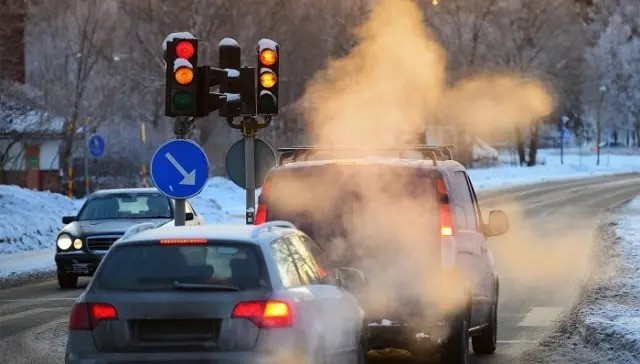
Recently, a report on German Television 1 attracted wide attention, focusing on the important communication between the German federal Minister of digitalisation and transport, Falk Wiesing, and the president of the European Commission, Ursula von der Leyen. At the heart of the letter is the widespread dispute over the interpretation of current limits on car emissions and the far-reaching impact it could have on the fate of millions of diesel-powered vehicles already on the road.
In his letter, Minister Wising made clear his deep concern about the EU's plan to reinterpret the vehicle emissions testing procedure. He pointed out that the change is no longer limited to traditional laboratory static measurements, but is intended to expand the test environment to more closely resemble the actual driving situation, including those models that have been approved for the market. Although the move is aimed at improving environmental standards and ensuring that vehicles can meet established emissions requirements in actual use, Minister Wiesing is concerned that if this initiative is not properly directed and is not clearly defined, it is likely to trigger a chain reaction, resulting in a large number of "Euro 5" and even some "Euro 6" diesel vehicles facing the fate of forced elimination.
The minister elaborated on his concern that the new test standards, if strictly enforced, would mean that vehicles would have to adhere to strict emission limits in any driving situation, including when climbing a hill with a full load. However, he stressed that the current level of technology is not yet able to ensure that the vehicle can meet the perfect standards in all driving conditions, which is undoubtedly an almost stringent requirement for existing vehicles, almost equivalent to setting an impossible target.
This potential change is undoubtedly an earthquake for the EU and the global car market. Not only will it affect millions of diesel vehicles, but it is more likely to trigger a crisis of consumer confidence, which will affect the overall stability and development of the automotive industry. According to the German authoritative media "Auto Bild" revealed that if the new standard is officially implemented from January 2025, there will be about 4.3 million "Euro 5" standard and 3.9 million "Euro 6" standard diesel vehicles in Germany at risk of stopping, such a huge number, enough to have a huge impact on the entire social and economic structure.
Thierry Breton, the EU's internal market commissioner, was quick to respond to Mr Wiesing's concerns, writing back to try to clear up the misunderstanding by pointing out that the EU's intention was not to impose emissions limits in all driving scenarios, but to emphasise compliance under "normal operating conditions". However, this explanation did not completely eliminate the concerns of the German side, the German Federal Ministry of Digitization and Transport spokesman pointed out that although the European Commission expressed the position of not retroactive, but the real decision is in the hands of the European Court of Justice, therefore, it is necessary to clarify and define the level of European regulations to avoid unnecessary confusion and loss.
The German car industry reacted strongly to the incident. The All German Automobile Club ADAC, as an industry representative, clearly stated that the affected vehicles have completed legal registration, and the change of test methods should not be retroactive, otherwise there will be no legal basis for forcing the suspension of these vehicles is undoubtedly "absurd". Muller, president of the German Automobile Industry Association, also expressed strong opposition, stressing that the retroactive application of the new procedures and standards is a direct violation of the principle of non-retroactive in EU and German law, which will seriously damage the authority and fairness of the law.
The dispute over vehicle emission standards not only tests the EU's governance wisdom and coordination ability, but also concerns the vital interests of millions of car owners and the future development of the entire automotive industry. How to find a balance between environmental protection and economic development will be an important issue that the EU and national governments must face in the coming period of time.

The U.S. AI industry in 2025 is witnessing a feverish feast where capital and technology intertwine: from OpenAI’s valuation surging to $300 billion, to tech giants scrambling to pour hundreds of billions of dollars into expanding computing infrastructure, and the government rolling out national-level support initiatives such as the Genesis Mission, the entire sector is displaying a roaring momentum of expansion.
The U.S. AI industry in 2025 is witnessing a feverish feast…
When top-tier AI technological momentum meets the world's p…
On December 10, 2025, a shocking farce of power play unfold…
Recently, according to Bloomberg, the cocoa bean market in …
Recently, US President Trump's sharp criticism of his Europ…
The United Nations World Food Programme said that the inten…